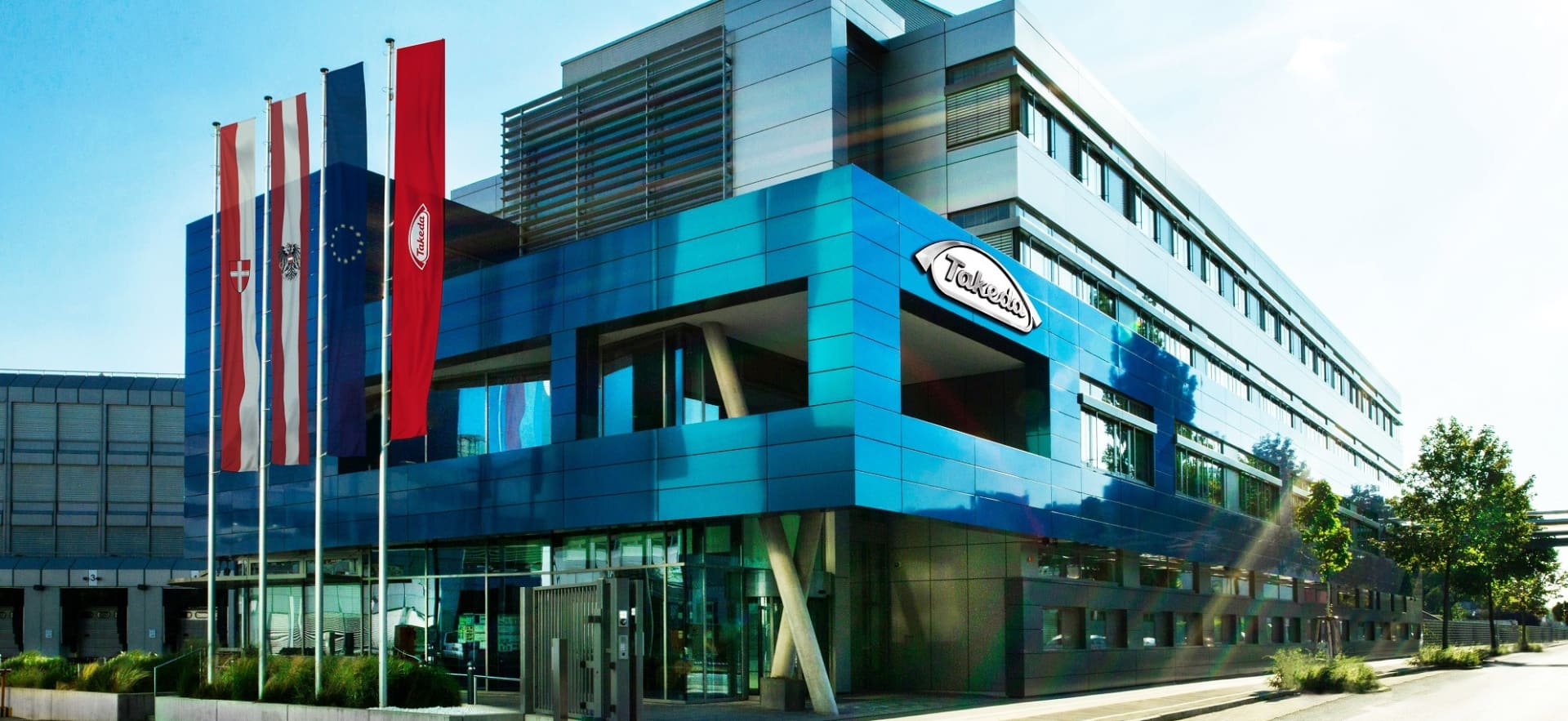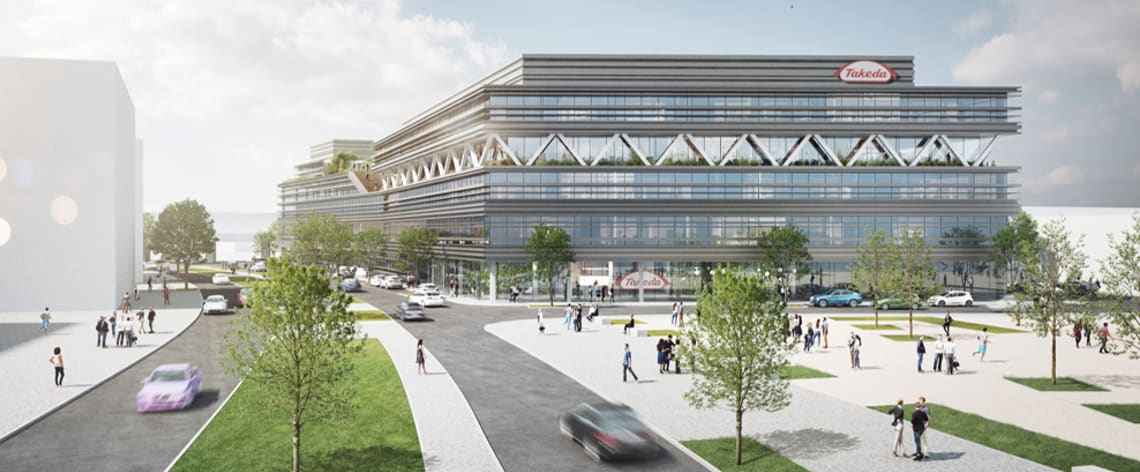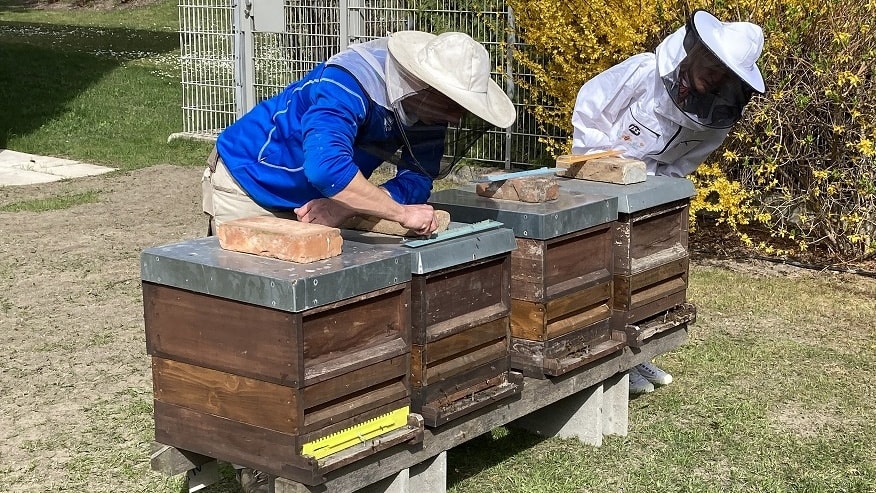A passion for sustainability is driving industry-leading CO2 savings in Austria | Takeda Stories

A passion for sustainability is driving industry-leading CO2 savings in Austria
Christian Bugl has two equal and unwavering passions: the environment and data. So when he was leading our Vienna manufacturing sites’ engineering organization in 2009 and saw an opportunity to reduce energy usage, he started by installing a sophisticated energy consumption tracking system. Thirteen years later, the site collects 133,000 data points a day detailing its gas, electricity, waste and heating usage.
“Our focus is to deliver the maximum amount of product to our patients worldwide with minimal impact on our environment,” said Christian, who is now head of Environment, Health and Safety, Sustainability, and Ethics and Compliance. “We don’t just believe in environmental sustainability, we have the data to see what we’re doing each day, week and month so we can optimize our systems.”
The Vienna sites, which make up Takeda’s largest manufacturing location worldwide comprising five separate production areas, some with multiple buildings, have become significantly more efficient in the years since. The CO2-neutral energy center already in operation and using 100% natural refrigerants — which don’t emit CO2 — has led to more than 30% greenhouse gas reduction at the major production sites in Vienna. By centralizing the cooling of the sites, the excess heat from the refrigeration system can be reused. The energy center is currently producing hot water, chilled water and deep cooling at these Vienna sites. In the future it is also going to produce steam and become the foundation for future sustainability projects.
Like this one, which may lead to the most drastic energy savings at our Vienna location yet: On Jan. 25 we announced AHEAD (Advanced Heat Pump Demonstrator), a research project that will integrate an innovative steam-generating heat pump into industrial operations for the first time ever. It stands to achieve greenhouse gas reduction of up to 90% at our major production sites in Vienna again using only natural refrigerants.
An industry-leading innovation
Pharmaceutical production is energy intensive and, to-date, most of the heat and steam required to initiate chemical and biological processes and ensure a sterile production environment has come from natural gas. The AHEAD project will replace burning natural gas with heat pumps, which in this case work by repurposing heat waste from chiller systems on-site. Since these can only heat to about 120 degrees Celsius, they’ll be combined with steam compressors to generate steam at 184 degrees Celsius — hot enough to meet the sites’ production requirements.
The project, which is a partnership between Takeda, the Austrian government and the Austrian Institute of Technology, includes developing a concept to replicate the system at our other locations in Austria and worldwide. It could serve as an example for the pharmaceutical industry and other industries and make a significant environmental impact globally.
AHEAD, which is expected to begin operations at the end of 2024, is the result of a unique focus on environmental sustainability at our sites in Austria — which span the entire pharmaceutical value chain, from plasma sourcing and R&D to manufacturing and patient supply — in which employees across functions and roles are tapped for innovative ideas.
“It was teamwork,” Christian said. “We’re lucky that we have 4,500 people across Austria, and everyone’s pushing to make progress. It’s common in Austria to be sustainable, to take care of nature.”
Making progress toward our net-zero goal
Our focus on protecting the planet has led to other innovative sustainability projects across our Austrian sites. These are improving the health of people and the planet while making progress toward our goal to be net-zero in our greenhouse gas emissions in our operations before 2035.
For example, in 2022 the Vienna sites launched a pilot project to transport plasma for production to the site using electric trucks, which are 100% emission-free.
Each new investment is seen as an opportunity to reduce our business’s environmental impact: In Vienna, for example, one of the buildings at our manufacturing site was awarded the leadership in energy and environmental design (LEED) certification in the gold category, and a new R&D lab will use a combination of solar, thermal, groundwater and district heating to operate with net-zero greenhouse gas emissions.
Employees team up to protect the environment
Our focus on environmental sustainability also includes the health and well-being of our employees. Our site in Orth/Donau owns beehives and has turned its outdoor space into a community garden where employees can spend their breaks or schedule outdoor meetings. Beehives were recently installed at the Vienna site, too, and the Linz site has a long-term beehive partnership. The local green teams — groups of employees dedicated to various aspects of sustainability — educate children from the building’s on-site kindergarten about the importance of protecting our environment through visits to the hives.
Creating that equilibrium between the company, our employees and the community is central to the work Christian and his team set out to do over a decade ago.
“It’s always key that everything we do, we do it sustainably,” he said.
Share this story


